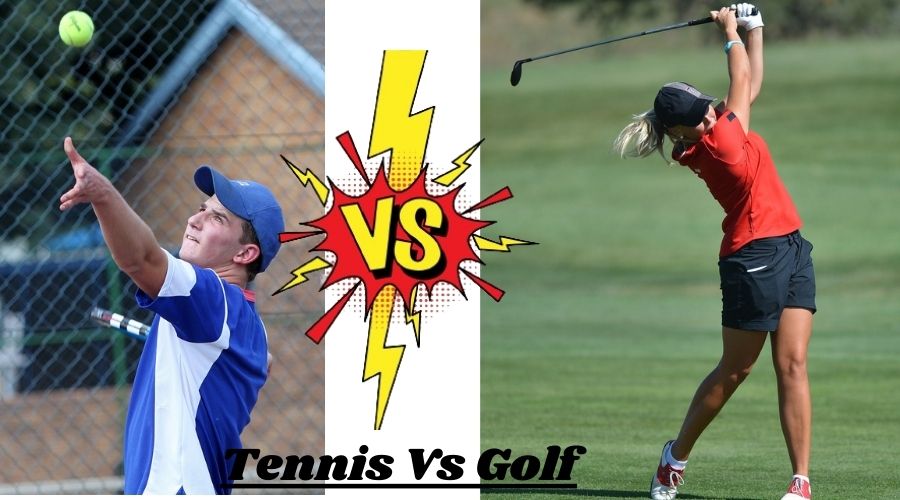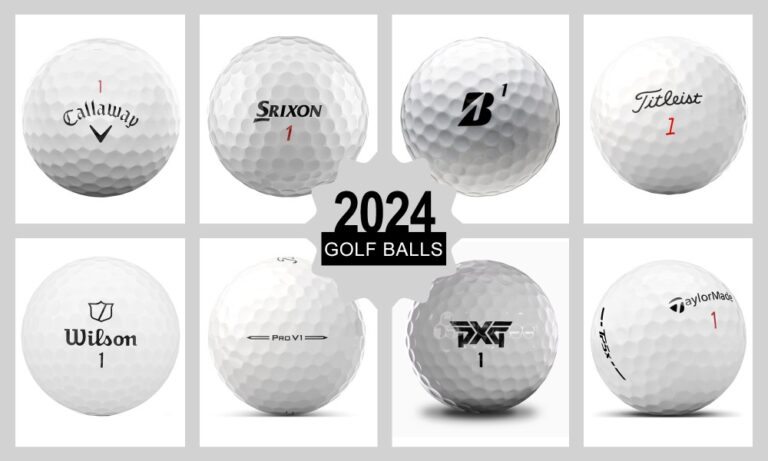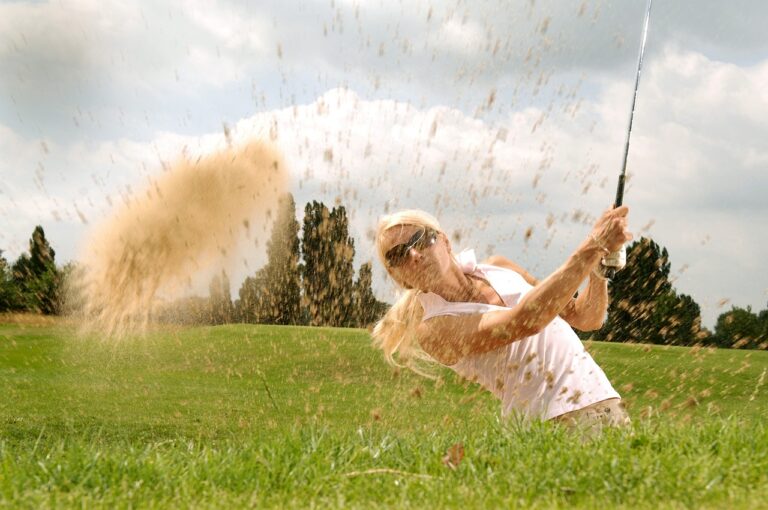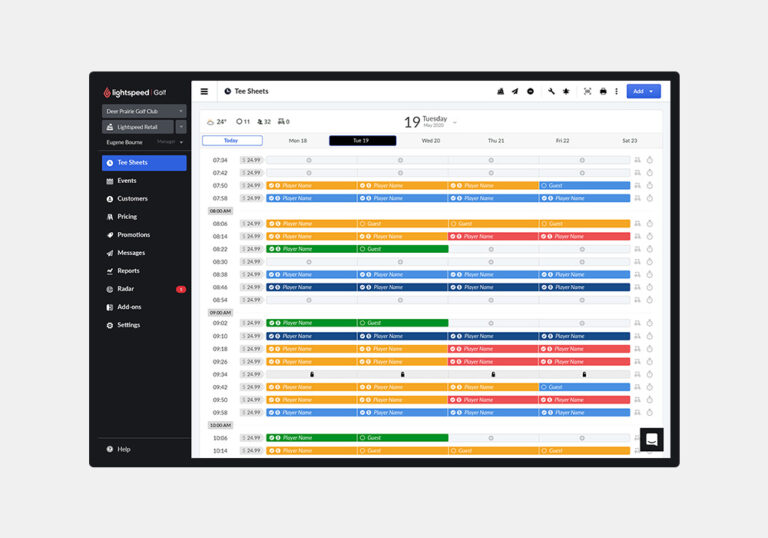Tennis and golf are both popular, individual sports requiring skill and precision. They differ greatly in pace, equipment, and playing areas.
Tennis is a fast-paced, highly physical sport that involves two or four players hitting a ball over a net on a rectangular court. In contrast, golf is a more leisurely activity where individuals take turns hitting a golf ball across a large, open course aiming for a series of holes.
Each sport offers its unique set of challenges and appeals to different audiences. Tennis demands quick reflexes and stamina, with players needing to maintain intense concentration during rallies. Golf, on the other hand, emphasizes strategic thinking and patience, requiring players to navigate varied terrains and weather conditions. Both sports have rich histories and have evolved with distinct cultures and etiquettes, catering to enthusiasts who appreciate their specific nuances and skill sets. Whether you prefer the energetic duels on the tennis court or the serene strategic gameplay on the golf course, both sports provide ample opportunities for enjoyment and personal achievement.
Contents
- 1 Tennis Vs Golf: The Fitness Showdown
- 2 The Calorie Burn Comparison
- 3 Muscle Engagement And Toning
- 4 Agility And Flexibility
- 5 Endurance And Stamina
- 6 Mental Focus And Stress Relief
- 7 Social Aspects And Networking
- 8 Accessibility And Cost
- 9 Injury Risks And Prevention
- 10 The Verdict: Balancing Benefits And Preferences
- 11 Frequently Asked Questions
- 12 Conclusion
Tennis Vs Golf: The Fitness Showdown
When it comes to choosing a sport for fitness, tennis and golf often come to mind. Both offer unique challenges and health benefits. The question is, which one is the ultimate workout? Let’s dive into the fitness components of each sport.
Cardiovascular Endurance In Tennis
Every tennis match is a high-intensity workout. Players run, pivot, and lunge to hit the ball. This non-stop action keeps the heart rate up. Here’s why tennis is a cardio powerhouse:
- Continuous movement: Players are always on their feet, moving quickly across the court.
- High-intensity intervals: The pace of play varies, creating a natural interval training effect.
- Endurance training: Long matches increase stamina and improve heart health.
Golf’s Subtle Fitness Benefits
Golf may seem leisurely, but it offers fitness perks in disguise. A round of golf can be a sneaky workout. Let’s peek at golf’s fitness benefits:
| Aspect | Benefit |
|---|---|
| Walking the course | Burns calories and boosts cardiovascular health |
| Swinging the club | Strengthens muscles and improves flexibility |
| Carrying the bag | Builds endurance and back strength |
Both sports have their fitness advantages. Tennis offers intense cardio workouts. Golf provides a more relaxed approach with hidden benefits. The choice depends on your fitness goals and preferences.
The Calorie Burn Comparison
When comparing tennis and golf, calorie burn is a key factor. Each sport offers unique benefits for fitness and health.
Intensity Levels In Tennis
Tennis is a high-intensity sport that requires constant movement. Players run, jump, and swing, leading to significant calorie expenditure. A typical tennis match can burn between 400 to 600 calories per hour, depending on the player’s weight and intensity of play. This makes tennis an excellent workout for those looking to improve cardiovascular health and lose weight.
Walking The Course: Golf’s Caloric Output
Golf might seem leisurely, but it offers a decent caloric burn, primarily through walking. A golfer walking 18 holes can cover approximately four to six miles. This walking, combined with the activity of swinging clubs, can lead to burning about 300 to 500 calories in a game. The calorie burn can increase if players choose to carry their own clubs.
Both sports engage different muscles and have varying intensity levels, but they both provide good opportunities to burn calories and stay fit.
Muscle Engagement And Toning
Muscle Engagement and Toning are key benefits of sports like tennis and golf. These activities challenge different muscles. Both sports offer unique ways to get fit. Let’s dive into how each sport helps build muscle and tone the body.
Upper Body Strength In Tennis
Tennis is a fast-paced sport. It requires strong arms and shoulders. Players use rackets to hit the ball. This action builds muscle in the upper body. The constant swinging tones the biceps, triceps, and forearms.
- Forehand and backhand strokes work the arm muscles.
- Serving boosts shoulder strength.
- Volleys engage the chest and upper back.
Players also use their upper body to maintain balance. This helps to tone muscles even further.
Core Stability And Strength In Golf
Golf may seem slower, but it’s great for the core. A strong swing starts with a solid base. Golfers twist their bodies to hit the ball. This movement strengthens the abs and back.
| Golf Movement | Core Muscles Worked |
|---|---|
| Swing | Obliques, Lower Back |
| Putting | Abdominals |
| Bending to Pick Up Ball | Flexors, Extensors |
The core is key for balance and power in golf. Strong core muscles prevent injury. They also improve the quality of the game.
Agility And Flexibility
Agility and flexibility are key in sports, especially in Tennis and Golf. These two sports require quick reflexes and a wide range of motion. Players must stay on their toes to perform at their best. Let’s dive into how agility and flexibility play out in Tennis and Golf.
Quick Movements On The Tennis Court
Tennis is a fast-paced game. Players must react swiftly to return the ball. Speed and coordination are essential.
- Lateral movement: Tennis players often move side to side. This keeps them ready for the next shot.
- Split steps: A small hop that players do before an opponent hits the ball. It prepares them for quick action.
- Fast footwork: Good footwork helps with balance. Players can then hit the ball with more power.
The Full Swing: Flexibility In Golf
Golf may seem slower, but it too demands flexibility. A golfer’s swing uses many muscles.
| Body Part | Role in Swing |
|---|---|
| Shoulders | They rotate to create a wide arc. |
| Hips | Hips turn for power and precision. |
| Spine | The spine must stay flexible. This helps maintain posture. |
Practicing flexibility can greatly improve a golf swing. A full range of motion is crucial for a powerful drive.
Endurance And Stamina
When it comes to sports, endurance and stamina often decide the winners. Tennis and golf test these attributes in unique ways. Let’s explore how these sports challenge athletes over time.
Marathon Matches Vs. 18 Holes
In tennis, matches can become marathons. Players battle for hours, chasing every ball. They need strength and breath control to keep going.
Golfers walk a long course when playing 18 holes. They carry their clubs and focus for each shot. Endurance is key for a steady performance all day.
Sustained Energy Expenditure In Both Sports
Tennis players use quick bursts of energy in each rally. They must recover quickly between points. This keeps their heart rates up.
Golfers use less energy per swing. But they must stay sharp mentally for hours. This takes a different kind of stamina.
| Tennis | Golf |
|---|---|
| High-intensity rallies | Long walks and swings |
| Short recovery times | Constant mental focus |
| Matches last 1-5 hours | Games can take 4-6 hours |
- Both sports require peak physical condition.
- Players must manage their energy smartly.
- Endurance and stamina are vital for success.
Mental Focus And Stress Relief
Mental focus and stress relief are key benefits of playing sports. Tennis and Golf provide these benefits in unique ways. Let’s explore how each sport impacts the mind.
Psychological Benefits Of Tennis
Tennis requires constant mental engagement. Players must think quickly and adapt strategies in real-time. This helps improve concentration and problem-solving skills. Tennis also offers:
- Improved mood from physical activity
- Stress reduction through endorphin release
- A sense of community, which can decrease feelings of loneliness
Playing tennis can lead to a sharp mind and a healthy body.
Golf As A Mental Game
Golf is often seen as a gentler sport, but it’s a serious mental challenge. Golfers must focus deeply on each shot. They also enjoy:
| Mental Skill | Impact |
|---|---|
| Precision and planning | Improves decision-making |
| Patience | Reduces stress levels |
| Self-control | Encourages emotional regulation |
Golf’s steady pace promotes a calm mind and relieves anxiety.
Social Aspects And Networking
The world of sports offers more than just physical benefits. Tennis and golf excel in creating social opportunities and fostering networking. Let’s explore how these sports enhance social connections.
Building Relationships On The Tennis Court
Tennis is a social sport that encourages interaction and camaraderie. Doubles matches bring players together, creating a perfect setting for friendly conversation and teamwork. Many tennis clubs host social events, mixers, and tournaments, offering an ideal environment to meet new people.
- Team competitions unite players with common goals.
- Mixed doubles events mix skill levels and genders, broadening social circles.
- Club leagues provide regular interactions, fostering lasting friendships.
Business Deals On The Golf Course
Golf is renowned for being a networking powerhouse. The leisurely pace of the game allows for in-depth discussions against a backdrop of manicured greens. Business executives often choose the golf course as a neutral ground for discussing deals and forming strategic partnerships.
| Aspect | Benefit |
|---|---|
| Golf tournaments | Connect with industry leaders and influencers. |
| Charity golf events | Support causes while networking with like-minded individuals. |
| Private golf clubs | Exclusive environments for high-level networking. |
Accessibility And Cost
Choosing between tennis and golf often comes down to two key factors: accessibility and cost. Both sports have unique draws and expenses. Let’s dive into what it takes to start playing tennis versus swinging a golf club.
Investment In Tennis Gear And Training
Tennis requires certain gear to get started. A basic tennis kit includes:
- Racquet: Essential for play, with prices varying widely.
- Balls: Sold in cans, relatively inexpensive.
- Shoes: Court-specific shoes are a must for safe play.
- Clothing: Comfortable, breathable attire for movement.
Aside from gear, lessons can help improve your game. Group lessons are more affordable than private coaching. Public courts are often free or low-cost, making tennis accessible to many.
The Price Of Playing Golf
Golf can be pricier to play. Starting costs include:
| Item | Cost |
|---|---|
| Clubs | Can be high, but starter sets are available. |
| Balls | Lost balls can add to the expense. |
| Shoes | Specialized footwear is recommended. |
| Green Fees | Varies by course, with some offering discounts. |
Golf lessons are also an option for improving your game. They tend to be costlier than tennis lessons. Golf courses charge green fees, and those can add up, especially at premium courses.
Injury Risks And Prevention
Understanding the injury risks in sports helps prevent them. Tennis and Golf both pose unique risks. Let’s explore how to stay safe in each sport.
Common Tennis Injuries
Tennis is a fast-paced sport. It requires quick movements and intense bursts of activity. This can lead to several common injuries:
- Rotator Cuff Tendinitis: This injury affects the shoulder muscles. It comes from repetitive arm motions.
- Tennis Elbow: It involves pain around the elbow. This results from overuse of the forearm muscles.
- Ankle Sprains: Sudden changes in direction can cause ankle sprains. They affect the ligaments around the ankle.
Prevention tips for tennis players include:
- Warming up and stretching before playing.
- Using the right technique and equipment.
- Strengthening exercises for muscles and joints.
Golf: A Lower Impact Sport
Golf is gentler on the body but still has risks. Common golf injuries include:
- Golfer’s Elbow: It is similar to tennis elbow but on the inside of the elbow.
- Back Pain: Swinging the club can strain the back.
- Knee Pain: The golf swing can put pressure on the knees.
Prevention tips for golfers include:
- Practicing good posture during swings.
- Carrying less heavy clubs.
- Wearing proper footwear for support.
Both sports need attention to form and physical health to avoid injuries. Proper gear and good practices are key.
The Verdict: Balancing Benefits And Preferences
When deciding between tennis and golf, consider what each sport offers. Both have unique benefits for health and skill development. This section helps you weigh those benefits against personal preferences to find the best fit.
Choosing The Right Sport For Your Fitness Goals
Tennis and golf serve different fitness goals. Tennis is high-intensity and improves agility, while golf is low-impact and enhances precision.
- Tennis: For cardiovascular health and endurance.
- Golf: For muscular strength and mental focus.
Match your fitness goals to the sport that aligns best. Tennis may suit those seeking a fast-paced workout. Golf fits individuals looking for a steady, strategic game.
Combining Tennis And Golf For Comprehensive Fitness
Why choose one when you can benefit from both? Mixing tennis and golf can lead to well-rounded fitness. This combination targets various muscle groups and skills.
| Sport | Cardio | Strength | Flexibility | Mental |
|---|---|---|---|---|
| Tennis | High | Medium | High | Medium |
| Golf | Low | High | Medium | High |
Playing both sports can lead to a diverse set of health benefits. A schedule with tennis and golf ensures a full-body workout with mental challenges.
Frequently Asked Questions
Is Tennis The Most Difficult Sport?
Tennis is challenging, but not the most difficult sport. Difficulty varies by individual skill, physicality, and personal preference.
Is Golf The Hardest Sport To Be Good At?
Golf is often considered one of the hardest sports to excel in due to its precision, skill, and mental demands. Mastering golf requires extensive practice and patience, making it challenging for many players.
Why Is Tennis Called A Rich Sport?
Tennis is often considered a rich sport due to high costs for coaching, equipment, and exclusive club memberships. The sport’s association with elite social status also contributes to this perception.
What Sport Is Most Similar To Golf?
The sport most similar to golf is disc golf, which shares similar rules and objectives.
Conclusion
Tennis and golf both offer unique benefits, catering to diverse preferences and skill sets. Whether you seek the fast-paced action of tennis or the strategic calm of golf, each sport provides ample opportunity for exercise, socialization, and personal growth. Embrace your passion, and let the court or course become your playground for health and enjoyment.





